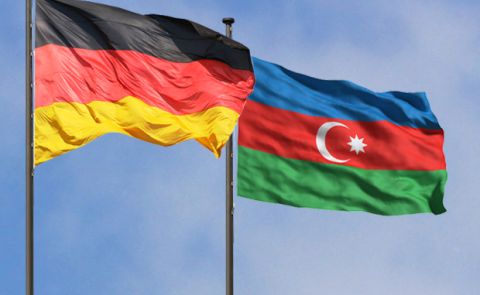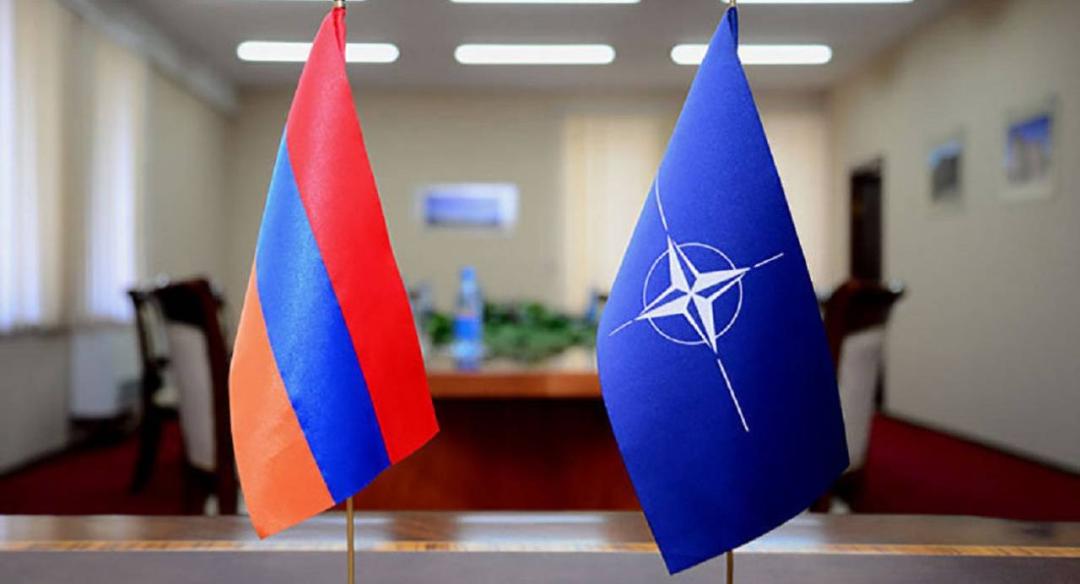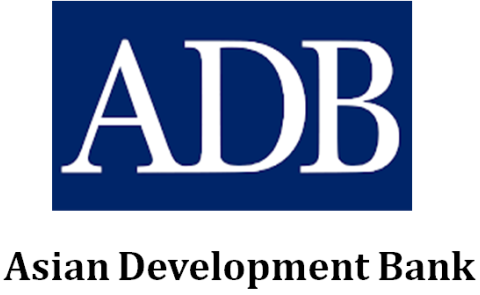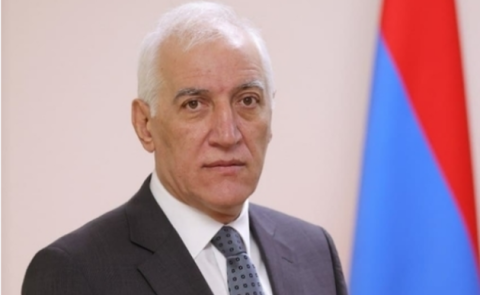
NATO experts assist Armenian military in improving education

From 19 to 22 August, a group of NATO experts visited the Armenian Ministry of Defense in order to discuss the launching of the pilot program for “Good Governance and Integrity Building” at the military educational institutions in the country. The administrators and professors of relevant subdivisions of the Ministry of Defense, as well as the Vazgen Sargsyan Military Institute and the Marshal Armenak Khanperyants Military Aviation Institute were present at the meeting.
The advisory group was hosted by the Head of the Center for Human Rights and Integrity Building at the Ministry of Defense of Armenia, Colonel Alexander Avetisyan. The current state of implementation of the self-assessment of NATO’s Building Integrity Program and the organizing of the expected events were discussed during the meeting. NATO’s representatives mentioned, with satisfaction, the progress made within the framework of the self-assessment process and expressed willingness to expand cooperation in this direction.
The Armenian police has also expressed its interest to collaborate with the alliance on introducing the subject in its corresponding educational curricula. As part of the efforts to develop a partnership, meetings have been arranged at different police institutions to define the format of future joint work.
The NATO Building Integrity (BI) Programme provides practical tools to help participating countries strengthen integrity, transparency and accountability as well as to reduce the risk of corruption in the defence and security sector. It promotes good practice, processes and methodologies, and provides countries with tailored support to make defence and security institutions more effective. It supports the implementation of the United Nations Security Council Resolution 1325 on Women, Peace and Security and related resolutions, and has integrated a gender perspective into its methodology and practical tools. Besides Armenia, 15 more countries are engaged in this program including Afghanistan, Bosnia and Herzegovina, Bulgaria, Colombia, Croatia, Georgia, Hungary, Latvia, the Republic of Moldova, Montenegro, Norway, Poland, Serbia, the Republic of North Macedonia and Ukraine.
Parallel to the visit of the NATO experts to Armenia, the Armenian military participated in another US-led military project. On 22 August the servicemen of the peacekeeping brigade of the Armed Forces of Armenia participated in the first stage of the Unified Endeavor multinational military exercise at the US military base stationed in Hohenfels, Germany. The objective of the exercise is to train, rehearse, and contribute to the overall preparation of the primary headquarters for units that will be assigned as, or attached to the International Security Assistance Forces (ISAF) in Afghanistan. The three phases of the exercise consists of academic training, the development of the operations plan, and the execution of the operations order. Each phase trains the Joint Task Force Component Commanders and their staffs at the operational level.
Armenia began its cooperation with NATO in 1994 when it joined the Partnership for Peace Programme (PfP). The cooperation with NATO is set out in an Individual Partnership Action Plan (IPAP), which is jointly agreed upon every two years. Armenia cooperates with NATO in the areas of defence, political and security issues, democratic standards, rule of law, and the fight against corruption. Besides the Building Integrity Programme, Armenia participates in other NATO programmes such as: the PfP Planning and Review Process (PARP), which helps develop the ability of Armenia’s forces to work with NATO forces on operations; the Partnership Action Plan on Defence and Institution Building (PAP-DIB), which helps partner countries to reform and restructure their defence institutions to meet their domestic needs as well as international commitments; the Defence Education Enhancement Programme (DEEP), which is aimed at reforming the professional military education institutions in the country; and the Partnership Interoperability Initiative (PII), which ensures a deeper connection between NATO and its partner countries. Armenia also works with NATO’s Euro-Atlantic Disaster Response Coordination Centre (EADRCC) in order to improve its emergency preparedness and response capabilities to deal with disasters and asymmetric threats, to improve contingency planning, and to contribute to international disaster relief operations. Yerevan is also engaged in the NATO Science for Peace and Security (SPS) Programme, which includes cooperation in areas of defence against chemical, biological, radiological and nuclear agents (CBRN), as well as disaster forecast and prevention. The Armenian peacekeepers are participating in the NATO Kosovo Force (KFOR) and the International Security Assistance Force (ISAF) in Afghanistan.
See Also


ADB And EBRD Announce Major Financial Commitments for Sustainability And Growth in Azerbaijan

Opposition Gains Ground as Civil Contract Struggles in Key Local Elections

Georgia’s Protest Movement Gains Momentum as Government Defends Independence and Economic Growth

Armenia's Central Bank Balances Global Risks Amid Steady Economic Growth

